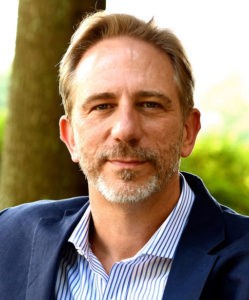This is a column about crises and injustices in the health care system in America. I interpret these crises and injustices as an indictment on the character and the governance of this country. What follows is inspired by hard personal experience but relevant to all who have ears to hear.
I make the following five claims:

David Gushee
First, emergency departments are a horrific way to seek medical care, and yet they are always full. The U.S. Department of Health and Human Services offered a report to Congress in 2021 that indicated its most recent complete statistics, pre-COVID, showed 143 million emergency department visits in 2018, resulting in 20 million hospital admissions. One in five Americans reported having made an emergency room visit that year. Emergency department visits are both disproportionately expensive and inefficient. In two recent emergency department visits for us, both resulting in hospital admission, one stay lasted eight hours and the other 15 hours. I remember when three hours in the emergency room seemed a long time.
Second, the overuse of emergency departments relates to a shortage of primary care providers and difficulty in accessing those who are available. Our family’s experience, even as insured people, has been that primary care providers have become more difficult and laborious to access, with longer and longer wait times for appointments and also longer wait times at appointments. This problem was visible prior to COVID and worsened considerably during COVID. We have responded by turning to the new direct primary care paradigm. But this costs money most families don’t have.
Third, there continues to be a crisis of mental health care in America. Rates of mental illness are surging, especially but not exclusively among the young, intersecting disastrously with inadequate numbers of psychiatrists, therapists, and inpatient beds for those needing hospitalization. It has become quite an achievement to gain access to either outpatient or inpatient services precisely at a time when those services are needed desperately.
Mental health is delivered on a step-down basis: residential centers for long-term stays, acute-care hospitals intended for shorter stays, partial hospitalization programs, intensive outpatient, and then regular outpatient visits. It is difficult to gain access to any of these levels of service.
“If you have great insurance and/or serious money, you might be able to gain access to high-end inpatient services in attractive locations offered by caring staff who are not overworked into exhaustion.”
Fourth, social stratification has clearly crept into the mental health business. The problem is visible at all levels of care but has an especially tragic result at the most acute levels. If you have great insurance and/or serious money, you might be able to gain access to high-end inpatient services in attractive locations offered by caring staff who are not overworked into exhaustion. We are talking about programs that might charge as much as $30,000 per month. But if you have little or no money, or only mediocre insurance, you face a very serious chance of either not getting access at all or having your loved one shunted off to (locked away in) a center of very dubious quality.
Fifth, our national mental health crisis has been worsened by the mainstreaming of drug use. Increasingly, patients are presenting in crisis for mental health care who have both a mental health condition and a drug dependency. It doesn’t help — at all — that U.S. society has mainstreamed marijuana use, but usage of harder drugs is also on the rise. This is just exactly what our country doesn’t need — more and more people with mental illness, exacerbated and intertwined with drug abuse.
Imagine a society in which everyone has ready access at a reasonable cost to a primary care physician who knows their name and can offer them the services they need.
Imagine a society in which such access reduces the need for 12-hour waits at emergency departments.
Imagine emergency departments adequately staffed for the timely treatment of those who do come.
Imagine a society in which everyone who needs any level of mental health care is able to receive it, regardless of ability to pay.
Imagine a society in which we protected the fragile brains and spirits of our young people instead of making money off their desire to use chemicals to escape reality.
Imagine a society in which lawmakers had the ability to develop and pass smart national legislation to address these problems, and the commitment to redirect government spending in line with these priorities.
Imagine.
David P. Gushee is a leading Christian ethicist. serves as distinguished university professor of Christian Ethics at Mercer University, chair of Christian social ethics at Vrije Universiteit Amsterdam, and senior research fellow at International Baptist Theological Study Centre. He is a past president of both the American Academy of Religion and the Society of Christian Ethics. His latest book is Introducing Christian Ethics. He’s also the author of Kingdom Ethics, After Evangelicalism, and Changing Our Mind: The Landmark Call for Inclusion of LGBTQ Christians. He and his wife, Jeanie, live in Atlanta. Learn more: davidpgushee.com or Facebook.
Related articles:
Caring for the casualties of a broken health care system | Opinion by Beth Jackson-Jordan
This small book is for health care workers operating on a wing and a prayer
Me and my multicultural medical procedure | Opinion by Bob Newell
Through 14 months of pandemic, hospital chaplains have carried others’ burdens
How a Baptist educator and businessman’s simple plan gave rise to the health insurance industry


